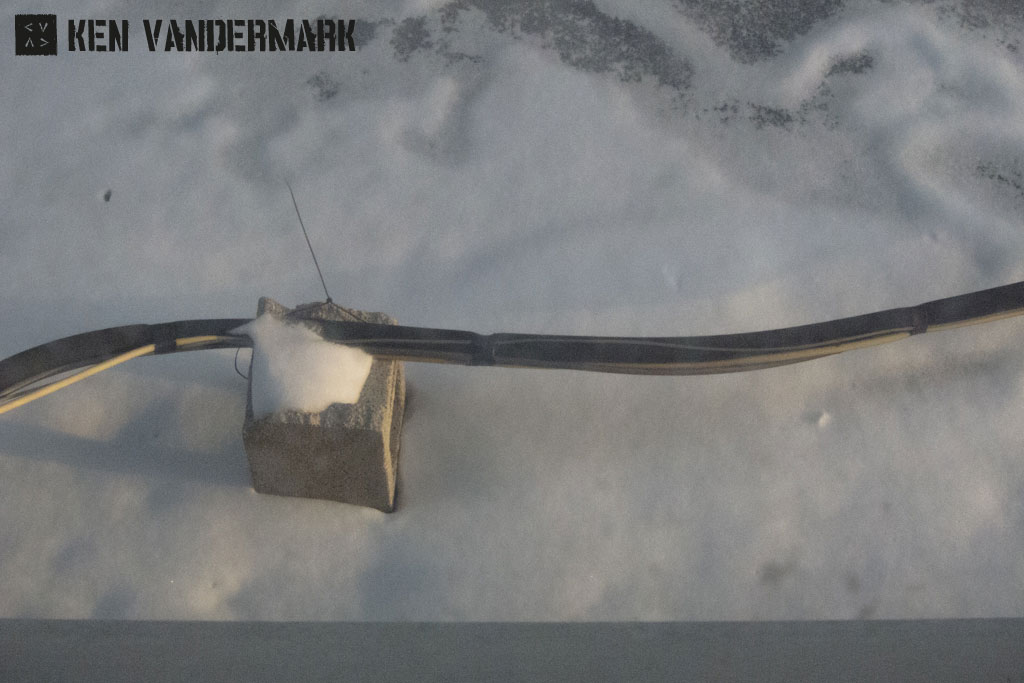

Released by Ken Vandermark’s Topology Nonet Featuring Joe McPhee [view band]
Record Label Okka Disk
Year released 2013
Release format CD
In 1982, with many thanks to my father, I heard Joe McPhee’s music for the first time. The album was Tenor, the composition was “Goodbye Tom B.” I was seventeen. After listening to that six and a half minute piece, everything changed for me. Music became what it is: organized sound. I discovered that material which previously seemed like chaos or noise to me was actually structured and could be quite beautiful without conventional melodies or rhythms or traditional forms. Before hearing Joe McPhee, when I saw the Art Ensemble of Chicago at a club called Lulu White’s in Boston, I could not make sense of their performance. After hearing Joe, they became one of my favorite bands. Because of him and my father, the listening I was doing shifted more and more from the great classics of Duke Ellington, Miles Davis, and Thelonious Monk, to other classics, but by Ornette Coleman, Albert Ayler and Cecil Taylor.Later that same year I moved to Montreal to study Film and Communications at McGill University. One of the first albums I bought when I arrived was Joe’s recording, Oleo. I knew some guitar players living in the same dorm and immediately asked them how Raymond Boni was getting the sounds out of his guitar. None of them knew. This questioning process made me begin to realize that what I was really interested in was music as a whole, not only “jazz.” Because almost no one I met at college had any interest in the music I was becoming more and more fascinated with (I formed a band, called, “Fourth Stream,” with the people who were exceptions to this), in order to talk about music (which I love to do) it was necessary to investigate rock more seriously, particularly the American underground that was coming to the fore at that time – bands on labels like SST and Twin/Tone, groups like Hüsker Dü and the Replacements.
While in Montreal during the years from 1982 through ‘86, I was fortunate enough to see some amazing music: Archie Shepp and Elvin Jones on a regular basis at “The Rising Sun,” and extraordinary concerts that took place in a small venue named, “Le Bruit Court.” It was there that I experienced the playing of Peter Brötzmann for the first time, in an incredible lineup featuring Peter Kowald and Andrew Cyrille (my memory of the music is a blur, the main thing I recall was the unbelievable intensity). And it was there that I initially heard Joe McPhee in concert, probably during 1985, in a duo with Raymond Boni where both of them worked with their instruments through a series of effects pedals. I was too intimidated to introduce myself, but Joe opened up my mind again – I had never listened to the use of electronics in improvised music until that point.
During these years, when I’d come home to the Boston area in the summer, and then afterward, when I had moved to that city until leaving for Chicago in the fall of 1989, I’d go see the groups of Joe Morris, and bands like the Fringe and Shock Exchange as often as possible. Then I’d catch as many visiting artists as I could at the Willow, Charlie’s Tap, and 1369; musicians like Sun Ra and his Arkestra, Ornette Coleman with Prime Time and his original quartet, Cecil Taylor, Billy Bang, Julius Hemphill, Peter Kowald, Michelle Rosewoman, Oliver Lake, Ray Anderson, Sonny Sharrock, Hamiett Bluiett, Dave Holland, Max Roach solo, Jimmy Giuffre with the Fringe, a startling concert of 5 percussionists at a performance space at Brandeis University, called The Joint, which included Thurman Barker, Dennis Charles, Laurence Cook, Beaver Harris, and Gerry Hemingway… It was an incredible era for jazz and improvised music in Boston, and a lot of credit for this belongs to Joe Morris, who helped organize many gigs for bands in addition to those of his own. I was always at these shows with my father, partly because I was under age and too young to get into the clubs alone for a number of those years, but mostly because we were both in love with this incredible music happening around us.
© 2024 Ken Vandermark – musician & composer | Disclaimer